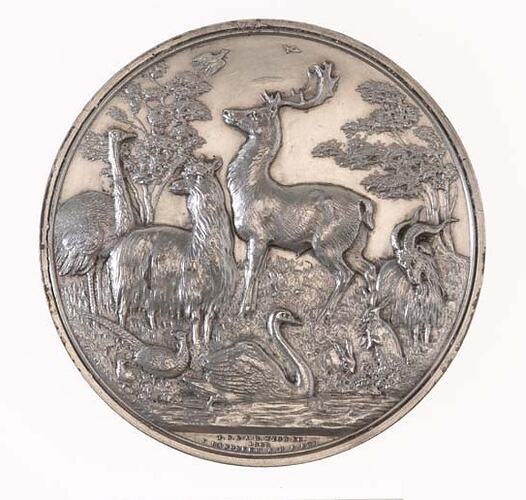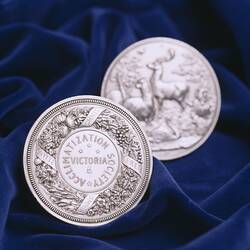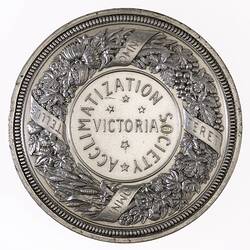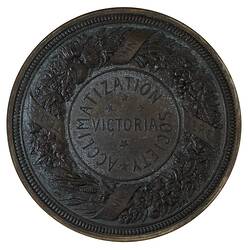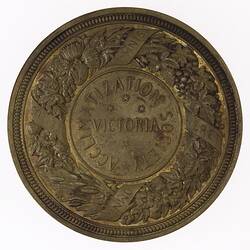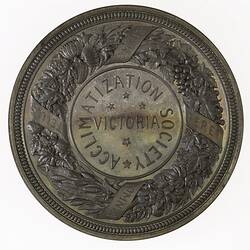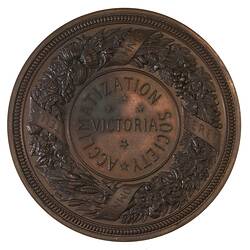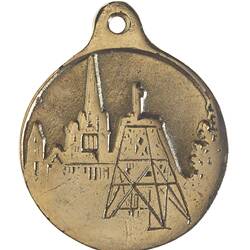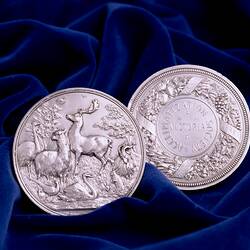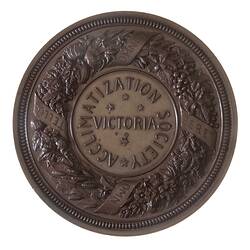In the mid nineteenth century in Australia and New Zealand acclimatisation societies were established to introduce exotic game animals and birds.
The work of eminent botanist Ferdinand von Mueller provided a model for these societies; between 1857 and 1858 he had distributed 7,120 living plants and 22,438 packets of seed to gardens throughout the colony. Lack of biological knowledge meant that the consequences of these introductions were generally unforeseen, 'there was never a body of men so foolishly, so vigorously, and so disastrously wrong'. (Rolls 1984, p 210). The societies' shortage of money and the failure of some animals to adapt saved Australia from the worst of their enthusiasms.
The Victorian Acclimatisation Society was founded in 1861 by Edward Wilson, a private collector whose motto was 'if it lives, we want it'. Wilson was supported by Henry Barkly, science patron and later governor. The Society was primarily responsible for the introduction of starlings, sparrows and European carp in the Murray River, as well as the successful transplant of the Sambar Deer (Cervus unicolor). Perhaps the earliest shipments of this species arrived from Ceylon in 1861, 'Four splendid full-grown elk - two stags and two hinds'. Acclimatisation societies were also busy elsewhere. On Woody Island, Queensland, rabbits were released, and possibly also pheasants, partridges, peafowls, Californian quails and guinea fowls. Only the rabbits succeeded, soon overrunning the island.
Parks including Eastern Park, Geelong, hosted activities of the Acclimatisation Society, hoping to introduce exotic animals and birds to their districts. In 1858, 20 hectares of Royal Park was set aside for a zoological garden for the Society. Eric Rolls notes, however, that zoological societies were distinct from acclimatisation societies. The Victorian Governor in 1863 was quoted as saying 'If the real object of an acclimatisation society were carried out, not a single creature would remain in our charge, for they would all be dispersed about the country'.
The Society folded about 1872, and the Zoological Society assumed the mantle of natural husbandry.
Medals produced in 1868 and held in Museums Victoria's collection are engraved using the alternative spelling Acclimatization.
References:
Curtin, T. (1997) 'The Causes and Consequences of Ecological Imperialism'. In The Journal of the Geography, Environment, Oekumene Society http://geoview.iag.org.au/index.php/GEOView/article/view/1
Rolls, Eric C. (1984). They All Ran Wild: the animals and plants that plague Australia. Sydney: Angus & Robertson.
University of Melbourne Bright Sparcs web site http://www.eoas.info/search-faceted.html?q=Acclimatization
More Information
-
Keywords
-
Localities
-
Authors
-
Article types
